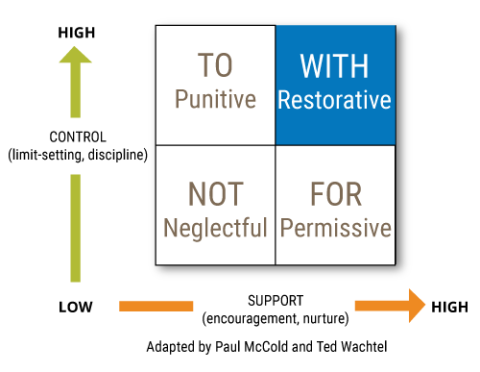Restorative Practices
What are Restorative Practices?
Restorative practices are processes that emphasize the importance of strengthening relationships to build social capital and that utilize restorative justice to restore relationships when harm/conflict has occurred.
In Foster Care and group homes, restorative practices work to provide the opportunity to build social capital and also to provide a platform for resolving conflict in a way that supports connection with the members of the home as well as the staff, providing a better outcome for our children most in need of stability, support, and care. The use of restorative circles can be used in group homes proactively, to develop and build relationships or reactively, to respond to concerns or conflict. Additionally, restorative conferences can be used in group homes to address the harm caused by more significant wrongdoing and to collectively decide how to repair the harm.

Difference Between Restorative Justice and Restorative Practices
Restorative practices include several different processes that are both proactive and responsive in nature . Restorative justice is a responsive reaction, consisting of either formal or informal responses to crime after it takes place. Restorative practices also include the use of informal and formal processes, but broadens the term by placing a significant emphasis on building social capital and strengthening relationships to prevent conflict and proactively develop a sense of community.
Contact Info
If you are affiliated with a group home or are a foster parent in the State of Florida and are interested in receiving training in your area by DCF’s Restorative Practices Specialist, please contact:
Janelle King at (850) 212-5116 or by e-mail at @email


